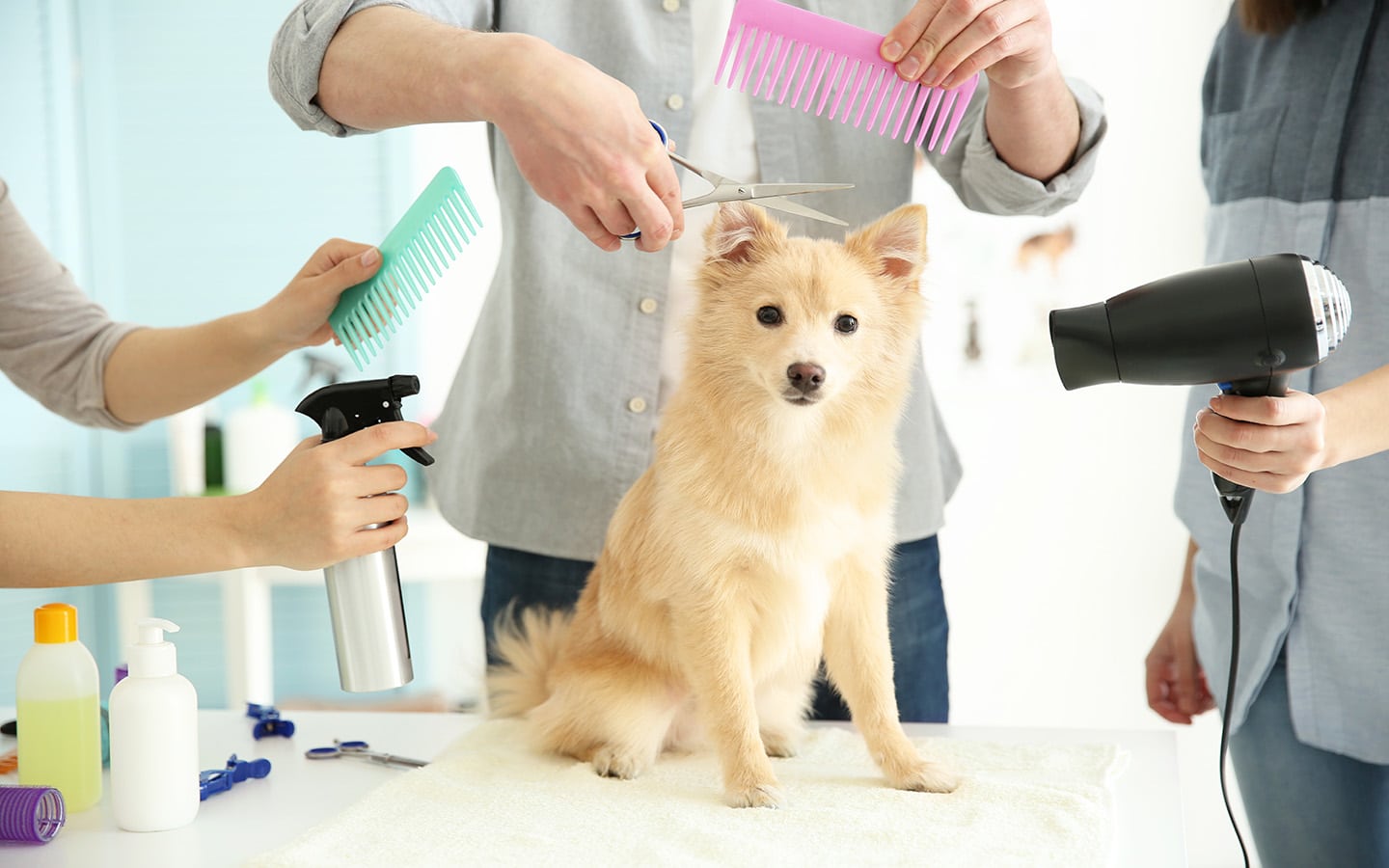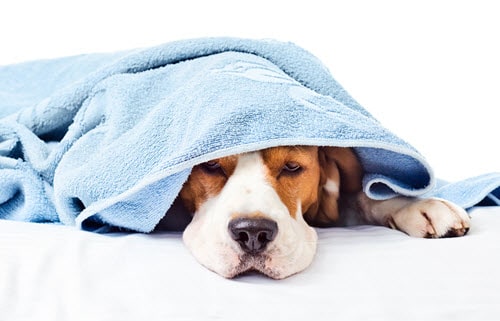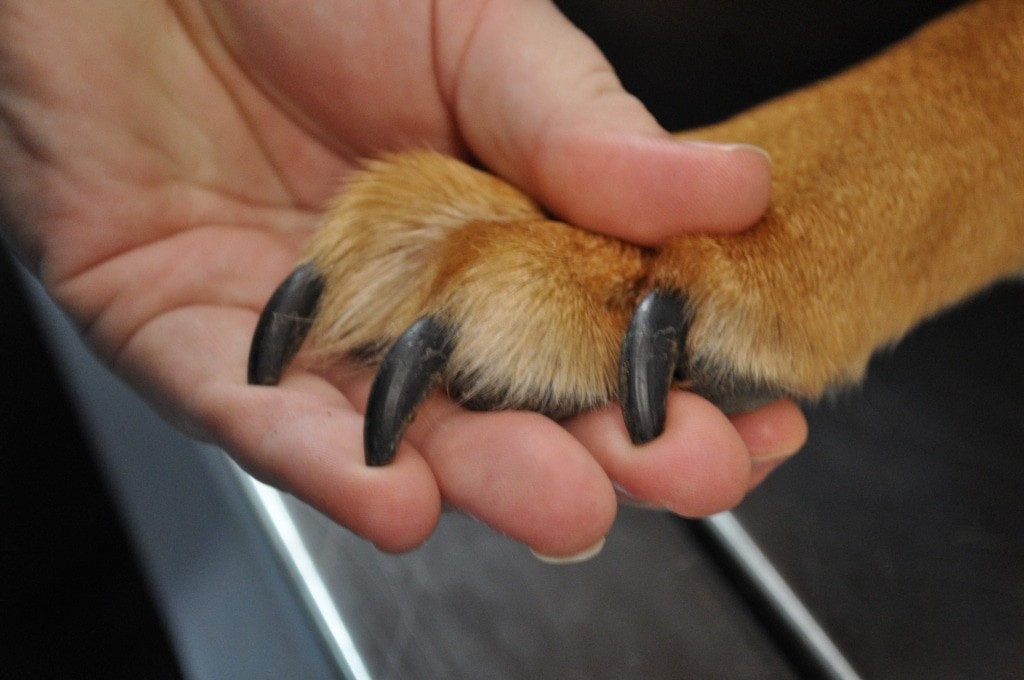Bringing a puppy into your home is an exciting time, and there are a number…
SUMMERTIME HAZARDS TO YOUR PET
Heat and Sun Exposure
When there is hot sun, high humidity and hot temperatures, the threat of overheating is very real. Pets can become dehydrated very quickly, so make sure they have access to plenty of clean, fresh water. When temperatures reach 80 degrees or more, or if it’s humid, avoid long walks with your pet. Walk them only in the early or late hours when it’s cooler. Dogs exposed to hot asphalt or concrete can burn their paw pads and risk complications such as infection.
Don’t leave your pet unattended in a car, even with the windows cracked. Cars can heat up rapidly, even if it’s overcast. Air conditioners can also malfunction, resulting in an unnecessary tragedy. If the temperature is above 65 degrees, keep your pet safe and leave them at home.
Just like people, pets can get sunburned, too, so try to keep them in the shade as much as possible. Dogs can get sunburned on their noses where they have no fur, in areas where they’ve been shaved, or if they have thin coats. If they’re going to be exposed to the sun for awhile, you do need to put sunscreen on them.
Signs of heatstroke and dehydration can include heavy panting, difficulty breathing, bright red gums or tongue, thick saliva, uncoordination, and even vomiting and diarrhea. If you suspect your pet has heatstroke, move your pet to the cool indoors and contact your veterinarian immediately. Overheated pets can suffer major organ problems that can result in death. Don’t assume that your pet is being kept cool by playing in the water. Pets have succumbed to heatstroke even when immersed in lake or pool water. They will play and exert themselves regardless of how hot it is. It’s up to you to limit their activity in the warm weather months.
Grooming is especially important during the summertime. Dogs may benefit from a shorter haircut if they pant and are uncomfortable due to a thick coat. Try not to clip them too closely, though, in order to protect their skin from the harsh sun.
Insects
Dangers posed by insects include bites and infectious diseases. A common threat to pets includes stings by bees, wasps and spiders. Some dogs develop a mild allergic reaction that results in swelling of the face and hives. A mild reaction may be treatable with antihistamines. Symptoms such as vomiting, diarrhea, pale gums, trouble breathing, a wobbly gait and collapse indicate a life-threatening anaphylactic reaction. If you suspect your pet is experiencing a severe reaction, contact your veterinarian immediately.
Mosquitoes may carry the larval stage of the heartworm. Dogs are a normal host species for this parasite, but cats may be infected as well. Dogs with untreated advanced heartworm infection develop heart failure and death. Infected cats may show sudden death or develop chronic asthma or vomiting. Monthly heartworm prevention is better than treatment after the fact, and prevention medicine is readily available through your veterinarian.
Tick-borne illnesses such as Lyme disease, anaplasmosis and ehrlichiosis are another menace to dogs. These diseases are transmitted by the bite of the tick into the bite victim. When your pet has his annual wellness check, your veterinarian can determine if your pet has contracted any of these diseases by performing a blood test.
Although pets can come in contact with fleas any time of the year, they are more prevalent in the hot and humid summer months. Treating your pet with a monthly flea-killing product should be all you need to avoid an infestation of fleas. Even indoor pets can be vulnerable, as fleas can enter your house hitching a ride on your clothes or shoes.
Intoxicants
Many fertilizers, pesticides and herbicides are loaded with chemicals that are toxic to pets. Try to look for natural, non-toxic garden care products for use around your home. Cocoa mulch is also hazardous to pets. Dogs will ingest the tasty cocoa and can become quite sick. Also remember to keep things such as citronella candles, oil products, bug repellent, insect coils and rodent bait away from your pet as well.
If you’re a gardener, there are many plants, flowers and greenery that are poisonous to pets if ingested. More information about poisonous houseplants and outdoor plants is available at the ASPCA Animal Poison Control Center website or you can call their 24 hour hotline at 1-888-426-4435.
Wild Animal Dangers
Pets that spend time outdoors are more likely to have encounters with stray or wild animals. Such encounters increase the risk of bite wounds, scratches and other injuries related to fighting, as well as infectious diseases such as rabies that can be transmitted through bite wounds. Rabies is a fatal virus that any mammal can be infected by and pass on. The most common wild animals to be infected with the rabies virus are: raccoons, bats, skunks and foxes. Be especially wary of any nocturnal wild animals seen out during the day, and any wild animals that have lost their normal fear of humans. It’s important to keep your pet’s rabies vaccination up to date, and it may be necessary for your pet to have a rabies booster shot if he comes in contact with any animals suspected to carry the rabies virus.
One of the most dreaded incidents is having a pet sprayed by a skunk. Most of the time, this is simply a major annoyance. However, when a pet, usually a dog, is sprayed in an enclosed area, it can be dangerous. Skunk spray directly into the eyes can result in ailments such as corneal ulceration, conjunctivitis and uveitis (internal inflammation of the eye). In rare cases, skunk oil toxicity has lead to convulsions, anemia and even death.
Ridding your pet of skunk odor can be a difficult endeavor. Act quickly—the longer you wait, the harder it is to remove the odor. In a bucket, mix together the following de-skunking solution:
¼ cup baking soda
1 quart hydrogen peroxide
2 tsp. degreasing liquid dish soap (Dawn works best)
Wear rubber gloves, and if possible, bathe your dog outside. This will keep the “wet skunk smell” out of your home. Begin with the areas directly sprayed first. Use a rag soaked in the solution to gently wipe your dog’s face—but be careful to avoid the eyes, nostrils, mouth and inside the ears. Lather the rest of his body all the way down to the skin. If needed, you can add a little water to get more lather. The solution may fizz a little. Leave the solution on for 3-5 minutes. Rinse and then repeat 2-3 times until most of the odor is neutralized. Don’t let your dog’s fur dry between cycles. It may take a few weeks to completely dissipate the odor, but this should remove most of the noxious smell so that you can once again welcome your dog inside your home.
Many inquisitive dogs have come face to face with a porcupine, only to suffer the consequences of their encounter. Porcupine quills usually become embedded in the face or feet. They are barbed and cannot be pulled straight out. The longer they are present, they may actually work their way further inward. The least traumatic way to remove porcupine quills is under general anesthesia by your veterinarian. Tense muscles and movement of awake dogs may cause the quills to break off. This will leave a piece of the shaft under the skin that will later cause an abscess or migrate into a body cavity, resulting in a much more complicated surgery to remove.
Snake bites are another summertime hazard. Some are harmless, but others are not. If you live in or are visiting an area where snakes are known to inhabit, keep your dog on a leash. Snakes love to hide, and tall grass and piles of junk are perfect hiding spots. Snake bites can be painful, and they can also cause swelling of the airways, multiple organ failure, clotting problems and shock, all of which can lead to death. Even if your pet has had a rattlesnake vaccine, he still should be seen by a veterinarian. The vaccination may only lessen the severity of the reaction and give you just enough time to get to the veterinarian for further treatment.
Thunderstorms and Fireworks
Pets, especially dogs, can have severe anxiety to thunderstorms and fireworks. If your dog exhibits signs of anxiety, consult with your veterinarian. Anti-anxiety medication may be prescribed to help calm your pet and make these situations less stressful for him.
Open Windows
When the weather gets warmer, windows get opened to let in the fresh air and breezes. Make sure that your windows have screens and that the screens are secure. If a curious dog or cat sees a bird or squirrel, they may push on a loose screen and it may fall out. This is especially dangerous in upper floors or high rises.



